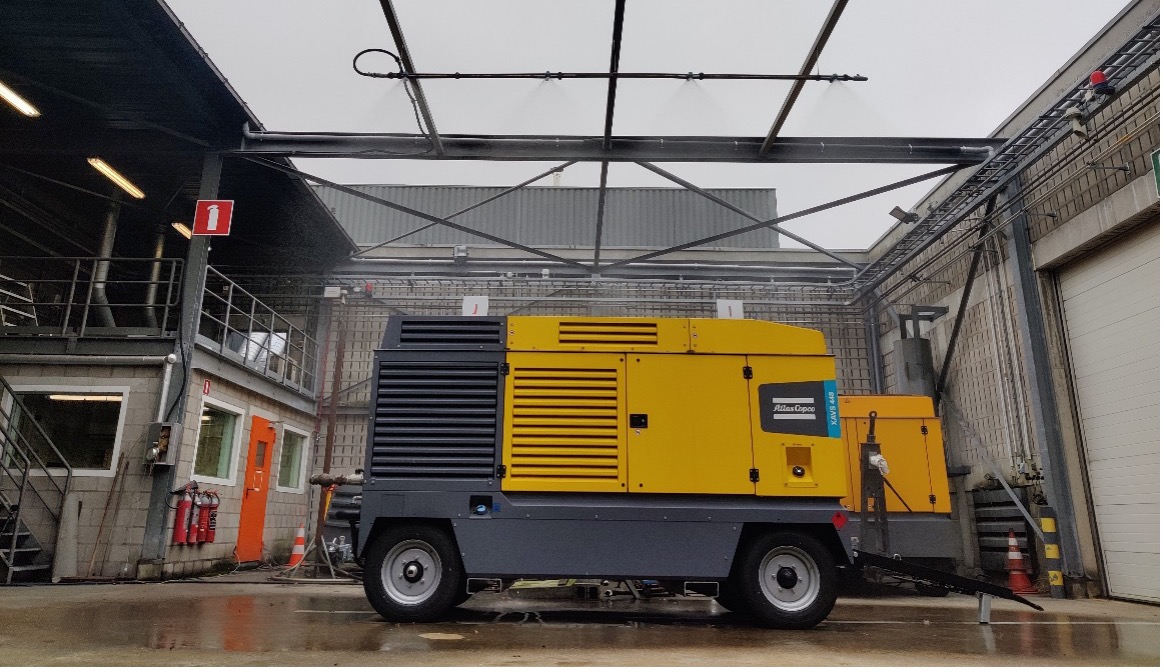7 Air Compressor Indicators
BY AsphaltPro Staff

The team at Atlas Copco Airpower, Belgium, shared a report on the seven indicators that your air compressor is ready to take on harsh conditions—whether that’s around the shop or out on the pavement maintenance site and so on. Edited for space, here are your seven indicators of the portable air compressor’s toughness.
- Make sure the manufacturer put it through performance testing, which includes leak, strength and temperature tests.
- The compressor’s toughness can be optimized through adopting recent developments in material innovation. You’re looking for more than just corrosion resistance.
- Harkening back to the testing in Point 1, you want to ensure your portable air compressor can withstand a broad range of heat and pressure levels.
- We’re teasing testing again. You want the portable air compressor to adapt easily to climate and environment changes. A truly reliable compressor can weather any terrain, and can continuously perform in high altitudes, snow, mud or rain. The most robust portable air compressors are designed, tested and certified with the most demanding conditions in mind.
- Track your portable air compressor’s uptime as an indicator of its toughness. If it’s accumulating a lot of downtime, something’s off.
- Look up safety testing data to see how well the model performs. This offers more than peace of mind for operators; it indicates how well the compressor is crafted.
- Track maintenance of the machine. To complement the machines’ physical resilience, ongoing check-ups ensure that the compressor remains tough enough to withstand all your team will throw at it.
For more information, visit https://www.atlascopco.com/en-uk/construction-equipment/products/mobile-air-compressors
